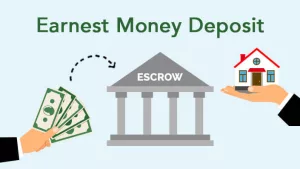Buying and selling with a tenant in place
Go Back To Previous PageBuying or selling a property in New York City with an existing tenant is often more challenging than dealing with a vacant unit. It applies primarily to co-op and single-family homes and does not cater to investors. However, buying a home with tenants in place can also be beneficial. On the contrary, having an existing tenant may be helpful when selling a condo or a multifamily property. Investors like to have a tenant in place right after they close, and some investors specifically look for units with tenants in place to reduce vacancy. Regardless of the property, the ideal scenario is having an existing tenant pay month-to-month prepaid rent. The home can appeal to investors who want cash flow certainty. However, it also applies to owner-occupants who wish to move in right after closing.
Let’s discuss buying a property with a tenant in place. Is buying a house with a tenant in place a bad idea? Some tenants even negotiated an option to purchase the property in a rent-to-buy lease.
Investors like the idea of carrying over the tenant post-closing, and Owner-occupants want the flexibility of ending the lease to take occupancy of the property immediately.

Buying a home with tenants in place
Some leases contain an early termination clause in the event of a property sale, and the option value is favorable to the seller. Indeed, having the tenant in place with an early termination clause encourages owner-occupant buyers to purchase the property.
The critical disadvantage of having a tenant is that scheduling showing requests and holding open houses is significantly more challenging. Another drawback is the possibility that the tenant keeps the unit in bad condition, making every sale step more complex.
Is it easier to sell a vacant apartment or one with a tenant?
 It is always more accessible for the listing agent to market a vacant apartment because access to the unit is less restrictive. There is more showing availability. Coordinating a showing or an open house with an existing tenant requires contacting the tenant and waiting to hear back.
It is always more accessible for the listing agent to market a vacant apartment because access to the unit is less restrictive. There is more showing availability. Coordinating a showing or an open house with an existing tenant requires contacting the tenant and waiting to hear back.
Tenants have no skin in the game regarding a sale, can be unresponsive, and sometimes require multiple reminders when scheduling a showing. It gets even more tricky if the prospective buyer has a schedule change after accepting a showing request.
It becomes critical to screen potential leads to save time for all the parties involved.
The lease usually provides a 24-hour notice period for showings, but sometimes, it does not. A tenant could make unreasonable demands, such as requiring three or even five days’ notice for viewings.
This lapse dissuades the majority of buyers. For overseas investors who travel to NYC at short notice to see apartments, a limited notice period would make it challenging to accommodate them.
 Furthermore, investors are unwilling to go out of their way to get a listing with a tenant, making scheduling difficult.
Furthermore, investors are unwilling to go out of their way to get a listing with a tenant, making scheduling difficult.
A foreign investor visits the properties available and decides to submit an offer on the unit they like best. Investors are not attached to any particular listing; therefore, they won’t be patient enough to wait for a tenant to confirm an appointment.
If a tenant is uncooperative, they can sabotage the sale process by refusing to hold public open houses or demanding that open houses be “by appointment only.” Not having public open houses is an obstacle to any sale, as it excludes walk-ins.
Should a seller wait until the unit is vacant to list it?
 Sometimes, the tenant is uncooperative or keeps the apartment in a terrible condition. Then, we recommend waiting for a tenant to leave before listing the property. The state of the unit makes it hard to take listing photos. Therefore, buyers who view the property may be discouraged because it is too messy.
Sometimes, the tenant is uncooperative or keeps the apartment in a terrible condition. Then, we recommend waiting for a tenant to leave before listing the property. The state of the unit makes it hard to take listing photos. Therefore, buyers who view the property may be discouraged because it is too messy.
It is harder to create an emotional connection. If the tenant is uncooperative, he could refuse to provide access altogether. There are instances where the tenant stopped responding to showing requests.
This makes it impossible to show the home to the buyer’s agent. If your unit looks terrible because the tenant is too messy, it could hurt the sale’s momentum. It prolongs the “days on the market” and forces us to reduce sale prices. This might not have been necessary if the unit had looked nice and staged.
Listing your home with a tenant in place is not always bad, especially if the tenant is cooperative and keeps the apartment organized. Most investors will prefer that a tenant is already in place, as it means a limited risk of vacancy post-closing.
Another drawback to waiting until a tenant vacates before selling is that the seller has no rental income to offset carrying costs during the selling process. Closing on a unit takes about two months after you are officially “in contract.”
This lapse excludes the marketing period of finding a buyer and signing the contract. Even with no mortgage payments, the seller must still cover the common charges and insurance for months as the sale process develops. Lastly, one can use this rent calculator to assess the value of a rental property. Another option is seller financing.
Selling a house with a tenant in place: is it better for a seller to sell a property with a tenant?
 It depends. Some sellers cannot afford the cost of an apartment without a tenant paying rent during the sale process. In New York, the selling process takes months to finally close the deal.
It depends. Some sellers cannot afford the cost of an apartment without a tenant paying rent during the sale process. In New York, the selling process takes months to finally close the deal.
Therefore, we understand why some sellers hesitate to wait for a tenant’s lease to expire before listing a home for sale. A typical sale in NYC takes 3 to 4 months to find a buyer and get “in contract.” After that, it takes an average of 60 days to close.
The prospect of having no income for half a year or more incentivizes the seller to list with a tenant in place. An uncooperative and messy tenant can jeopardize the sale, resulting in fewer offers, lower prices, or no deal. Therefore, a seller must consider the risks and benefits of marketing a property.
In conclusion, the decision ultimately comes down to how cooperative and neat the tenant is. It only adds one more step to the sales process.

Buying a house with a tenant in place
Assuming the tenant permits Sunday open houses and private showings, there won’t be any real issues when showing the property to prospective buyers. A well-organized apartment will make it easier to take listing photos and display the unit in the best possible light. If the tenant is unresponsive and requires too much notice for appointments, the tenant may significantly jeopardize marketing efforts.
The decision also depends on the unit type and how desirable it is to prospective buyers. Selling a one-bedroom in a Midtown high-rise coop takes longer than an attractively priced, pre-war brownstone in the West Village with exposed brick and outdoor space.
Buying a home with tenants in place: Should buyers purchase a unit with a tenant?
 Should you buy a property with a tenant in place? The answer depends. For an investment property, purchasing a property with a tenant is sometimes safer, and the buyer won’t take any vacancy risk post-closing. Of course, it only makes sense to buy a property with an existing tenant if that tenant has a “market rate” lease and has been paying rent on time.
Should you buy a property with a tenant in place? The answer depends. For an investment property, purchasing a property with a tenant is sometimes safer, and the buyer won’t take any vacancy risk post-closing. Of course, it only makes sense to buy a property with an existing tenant if that tenant has a “market rate” lease and has been paying rent on time.
The buyer’s real estate attorney must review the tenant’s lease and reconfirm that the tenant has some security deposit on file with the seller.
Darren Robertson of Northern Virginia Home Pro comments that you have to keep in mind that most parts of the country show that homeownership is 40 percent more expensive than renting a place with similar amenities. And that’s year after year, too. Sure, you’re building equity, but there are other options you might want to consider. Stocks and bonds don’t require maintenance and can grow on their own.
Understanding the details of New York City’s rent regulations (rent stabilization or rent control) is also crucial. Be careful if any form of rent stabilization or rent control applies to the property you are purchasing.
Consider all the above information to decide whether buying a home with tenants in place is correct. NestApple is always available to answer any questions.


